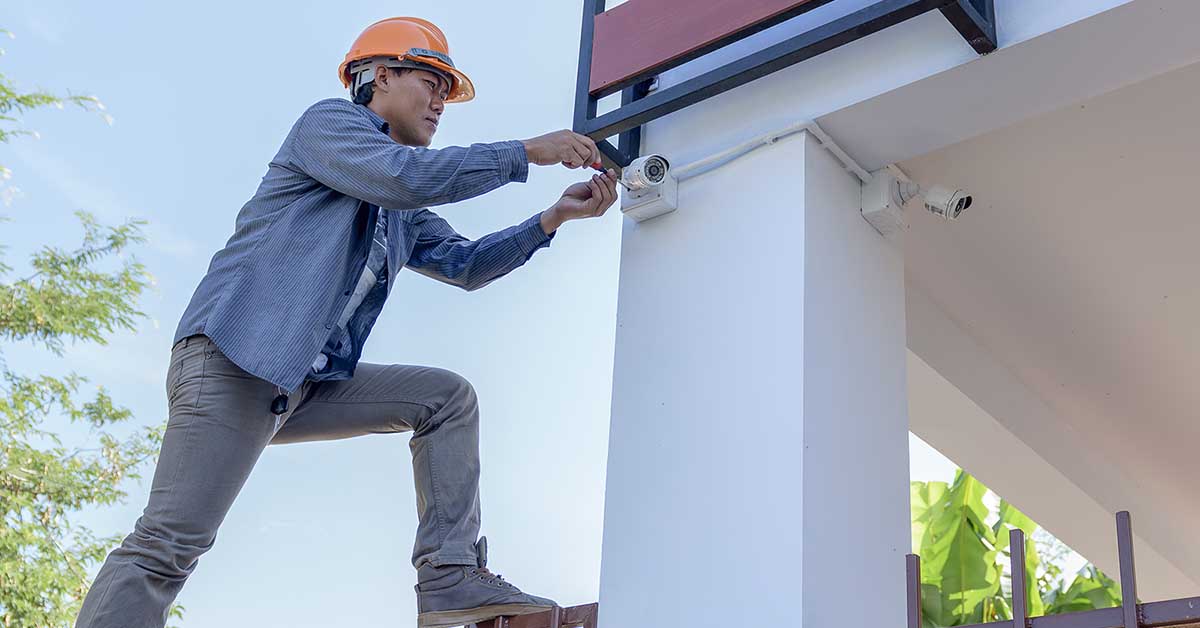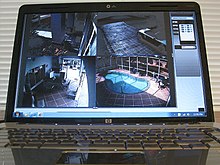
Scout security is a DIY security system that can provide professional monitoring. However, it requires a contract. Protecting your home is important. The service provides 24 hour monitoring and is easy to set up. Scout is an excellent option if you don't require a professional monitoring service.
scout is a DIY house security system
Scout is a DIY home security system that takes its cues from ADT-style home security. The Scout hub costs $129, and comes with a camera, motion sensor, cellular backup, and live monitoring. The Scout hub can be customized with any combination of sensors and accessories. The Scout hub plugs into an Ethernet cord and is very easy to put together. A mobile app is available for controlling the system. It also allows users to create their own rules. Scout hub, for example, has pre-populated settings that you can use to set up Vacation, Away, or Home.
If you don't feel confident installing the system, you can hire someone to monitor it for $20 per calendar month. Other DIY security systems also offer this monitoring service at no cost. You can arm, disarm and manage your home automation using your smartphone. The service helps prevent you from worrying about the safety of your home if power goes out or if you don't have internet access.

it offers a professional monitoring service
Professional monitoring service can be a great choice if you have concerns about your home's safety. Scout security, a professional monitoring service, can protect your home and family from unwanted visitors for as low $20 per month. You'll also get professional monitoring 24/7, 4G LTE backup, unlimited text and phone call alerts, and unlimited SMS and phone calls.
Scout security is a unique home security system that does not have hidden fees or contracts. Scout customers are able to purchase all equipment and only pay a monthly monitoring charge. The security team will contact the police or fire department in case of emergency.
You can choose from two colors for the Scout alarm and it comes with a 3-year warranty. This makes it an affordable DIY security system. You can monitor the system online for $9.99 per month. It doesn't require a contract. There is also a 60-day money back guarantee. You can cancel your subscription at anytime. You can decide to discontinue monitoring and opt out at any moment.
You will need to sign a contract in order to use it
Scout Security requires that you review the Terms of Service. These Terms create a legal relationship between Scout and Scout. Scout will only provide services under these conditions. Scout cannot provide any service to you if they do not follow them.

Scout is not responsible for any damages resulting from the use of its products or services, as stated in the TOS. Scout also states that it does not offer any warranty regarding title, non-infringement or merchandising.
Scout can also be reached at Scout to ask questions. Scout will respond to any queries or complaints you may have. You may also ask for the removal of your Personal Data. Scout might need to share Personal Data in certain cases to provide its services.
FAQ
Which is better, home security cameras of home security systems?
Home security systems are better than home security camera because they can detect movement and sounds even if nobody is in the room. Home security cameras, on the other hand, are more affordable than home security systems and can be easily mounted on windows or doors.
Can I install my own security camera?
Yes! You can set up a home alarm if you have some knowledge. If you don’t want to hire someone to do it, they will be able help you.
How much does a good home security system cost?
A home security system is about $2,500. This might seem like a lot, but it's really quite inexpensive when you consider the peace of mind that comes with having a safe and secure place to live.
Statistics
- (In my experience, the discount on my home insurance covered about 25 percent of the subscription of an average plan, but your mileage may vary depending on your location and the size of your home.) (theverge.com)
- Related questionsHome security systems that are 100% DIY (safewise.com)
- Depending on your insurance, 24/7 professional monitoring may qualify you for as much as 15% off your premium. (safewise.com)
- Unlike other online safety services that charge up to 100 percent of your monthly fee, Cove charges no upfront fees and has no hidden costs.
External Links
How To
How to Install A Home Security System
A home security system monitors your property and alerts if there is any activity. It could include a motion sensor or doorbell camera, smoke detectors, flood alarms, carbon monoxide detectors, burglar alarms, and flood alarms. A home security system usually consists of one or more sensors (e.g., motion detectors), which send signals when they detect movement or sound. The signals are then sent to a control panel where they're monitored and recorded. If there's a problem such as someone breaking into your house or other suspicious activity, the control panel sends an alert via your phone, tablet computer, voice assistant, or computer. You'll know what's going on and can take action immediately.
Selecting the right sensors for your home is an important step in installing a home security alarm system. There are two main types, passive and active. Passive sensors don’t need batteries. Instead, they simply pick up sounds or vibrations from the environment. They can be doorbells or sirens as well as buzzers. Active sensors transmit data via electricity. Examples of such sensors include cameras and motion sensor.
There are many types of sensors on the market today. Each brand has its pros and cons. Some sensors are waterproof, others are not. Some include built-in speakers to allow you hear them even when they are outside. Some work only indoors. Others are more complex, while some offer more advanced features like night vision.
After choosing the best sensor type for your property you can choose a manufacturer. This will help you ensure your sensors work well together. There should be many options at your local hardware store.
Once you have decided on a brand to use, it is time to decide on how many you want. Depending upon whether they live alone or in a group, most people begin with one or two sensors. However, if you plan to add additional sensors later, you might consider buying extra than you think you'll need now.
Next, you'll need to figure out where you want to place your sensors. Are you looking for them to be near doors or windows? Or do you prefer having them hidden away? Make sure you get permission before placing them around your property. Also, make sure they won't interfere with anything else, like electrical outlets.
Now that you know the exact location of your sensors you will need a connection to your control board. A power adapter or battery package may be required depending on your setup. Once everything is in place, you can start to monitor your property.